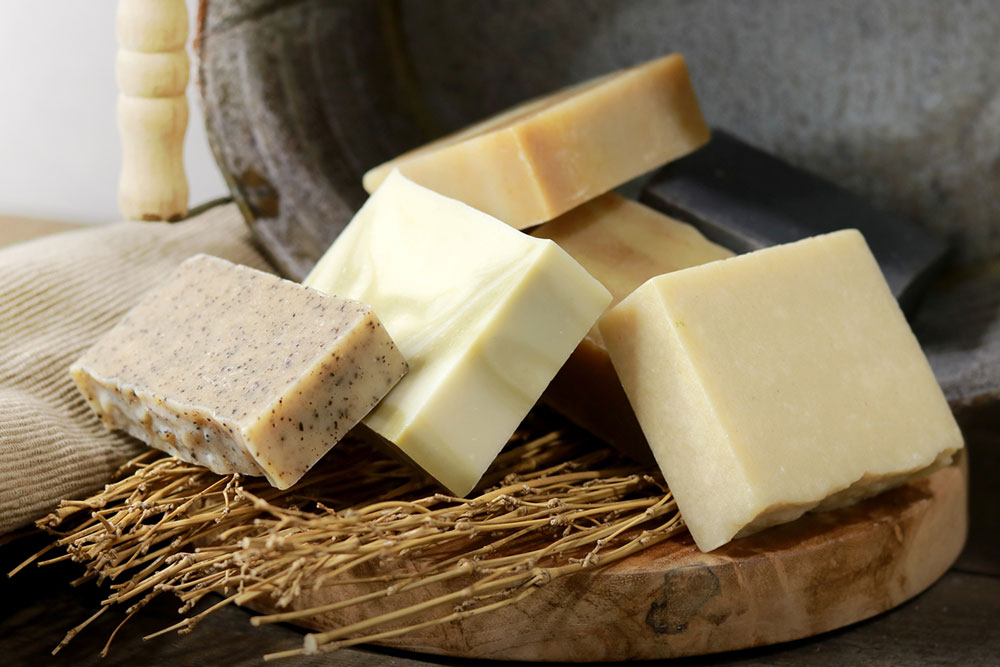
9 Soap Ingredients That Can Trigger Eczema
Washing one’s body with soap and water helps eliminate germs. However, this seemingly innocuous daily ritual can harm those with eczema if not done carefully. Some soaps have ingredients that can trigger the condition’s symptoms and make matters worse. Therefore, individuals dealing with eczema should choose wisely. Options with minimal, skin-friendly ingredients can help prevent flare-ups and complications. But soaps that feature the following on their labels are best avoided.
1. Fragrances
For many, the allure of a fragrant soap is irresistible. However, behind that pleasant aroma could lurk a potential eczema trigger. Fragrances in soaps often contain a mix of chemicals that can be harsh on sensitive skin. These chemicals might provoke irritation and exacerbate eczema symptoms. Opting for fragrance-free or hypoallergenic soaps is a safer bet for those with eczema-prone skin.
2. Harsh detergents
Foamy lather might seem synonymous with effective cleansing. However, it can be problematic for eczema-prone skin. Harsh detergents, such as sodium lauryl sulfate, can strip the skin of natural oils, leading to dryness and irritation. Switching to soaps with gentler detergents can be a game-changer for those aiming to keep eczema at bay.
3. Preservatives
Preservatives are the unsung heroes that prolong a soap’s shelf life. However, they might not be as friendly to eczema-prone skin. Parabens and formaldehyde-releasing preservatives can be harsh and trigger skin reactions. Therefore, opting for preservative-free or naturally preserved soaps might be a wiser choice for those with sensitive skin conditions.
4. Artificial colors
Although artificial colors make soaps visually appealing, they might not sit well with eczema-prone skin. These colors often contain chemicals that can cause irritation. Choosing soaps without artificial colors might not only be gentler on the skin but also reduce the risk of triggering eczema flare-ups.
5. Essential oils
While essential oils are celebrated for their natural healing properties, they can be a double-edged sword for people with eczema. Some essential oils, like citrus or mint oils, can be too strong for sensitive skin, causing irritation. Opting for soaps with milder essential oils or avoiding them altogether can be a thoughtful approach for those looking to soothe their eczema-prone skin.
6. Antibacterial agents
Some soaps boast antibacterial agents that help provide squeaky clean skin. However, for individuals with eczema, these agents might disrupt the delicate balance of the skin microbiome, leading to increased vulnerability to irritants. Choosing a mild, moisturizing soap without aggressive antibacterial components might be a gentler way to keep the skin happy.
7. Lanolin
Derived from sheep’s wool, lanolin is commonly found in some soaps. While the ingredient is prized for its moisturizing properties, it can trigger allergies in some individuals, leading to eczema flare-ups. Reading labels carefully and opting for lanolin-free alternatives can be pivotal for those with skin disorders.
8. Petrochemicals
Petrochemicals, derived from petroleum, are sometimes used in soaps as emollients. However, they can be harsh on sensitive skin, potentially triggering eczema. Soaps without petrochemicals can be a better option for individuals with eczema-prone skin.
9. Formaldehyde
Formaldehyde, sometimes used as a preservative in soaps, is notorious for causing skin irritation. Avoiding soaps containing formaldehyde can help prevent skin reactions in those with eczema.



